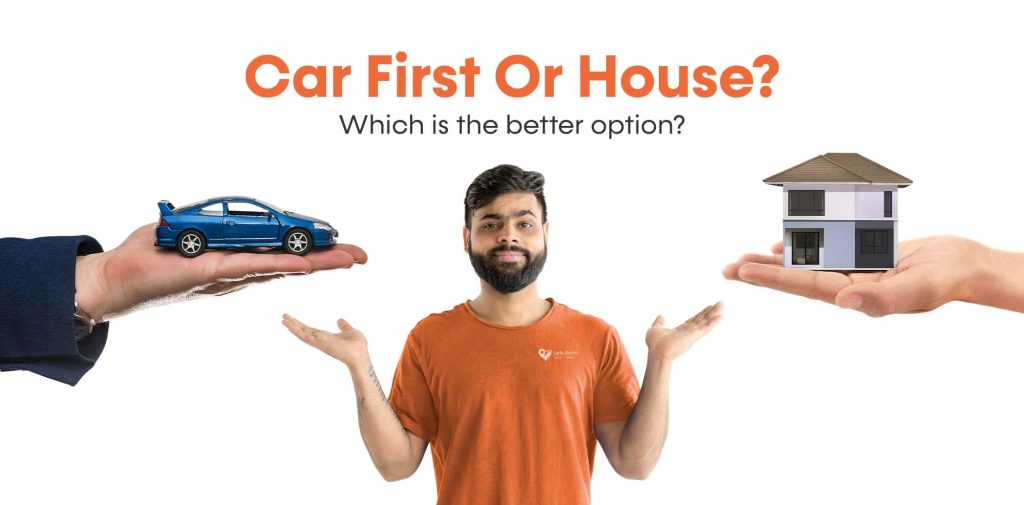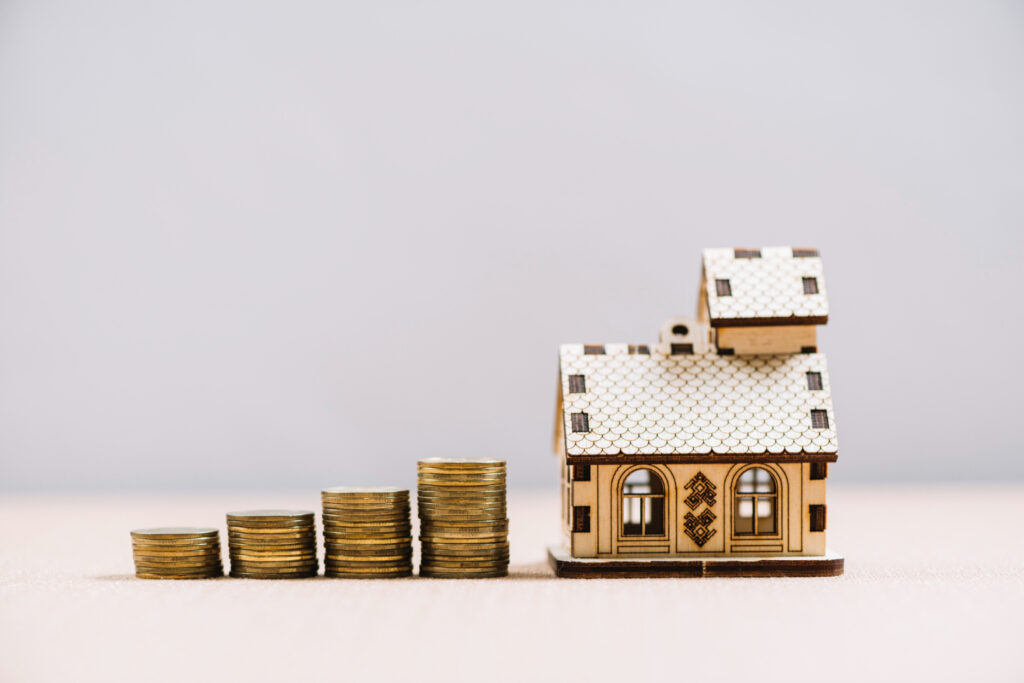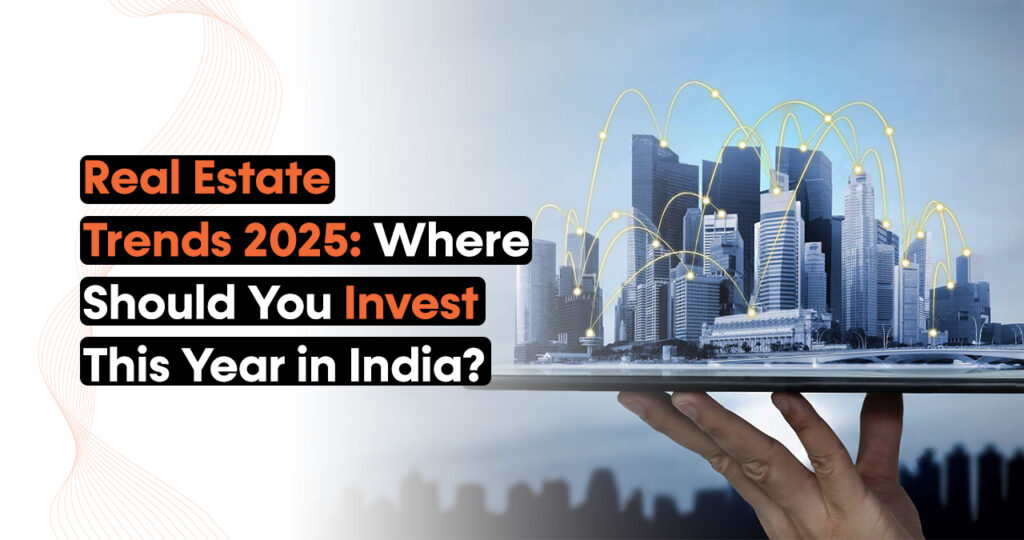Which Should I Buy First: A House or a Car? Decision-making and development go hand in hand. Thus, making decisions is the foundation of every action in life. And no matter how unimportant the circumstance at the time of decision-making, those choices will always have an impact on the person’s life moving forward.
This includes making a simple decision like initially purchasing a house or a car. Interests and current conditions must inform every decision. First, the fact that one was ranked ahead of the other two possibilities—purchasing a house or a car—indicates that the individual has the financial wherewithal to fulfil any of the options. The individual may as well be able to purchase both at the same time. But what comes next after the purchase is the question. Houses are more expensive than cars, yet both are still very expensive. Well, that depends. There are also expensive cars that are either comparable to or more expensive than residences.
The decision must always be made with the person’s needs and circumstances taken into the highest consideration. Cars are typically viewed as liabilities while homes are viewed as assets. Cars are expensive to maintain because they are a liability. Actually, a person’s ability to possess a car is determined by his ability to pay for its upkeep since, after all, what happens to an automobile once it is purchased? Purchasing an automobile might not be the best course of action if you lack a reliable source of income to support vehicle maintenance.
But having a car is absolutely essential. Having a way to move around is crucial. It offers you convenience, saves you a great deal of time, and spares you the occasional embarrassment that comes with using public transportation. Besides a house, an automobile is another significant investment. It is important to choose how much to spend on it, though, because it is an asset that depreciates.
The primary motivation for the majority of people to purchase vehicles is to travel more comfortably and avoid using public transportation. A car, however, also represents a person’s social and economic standing. Buying an automobile also has other expenses that you must take into account, such as obtaining four-wheeler insurance to safeguard the vehicle from harm. In India, every automobile owner is required to have a third-party auto insurance policy.
However, you can choose the prices with a comprehensive auto insurance policy based on your financial situation.
Purchasing a Car May Impact Your Credit
Purchasing a car will affect your credit if you don’t pay with cash. A few of these outcomes may be advantageous: Your credit score can be greatly improved by having a spotless history of car loan payments. Furthermore, having a good credit score does assist you get approved for a mortgage.
However, a vehicle loan won’t instantly improve your credit because it takes time to establish that payment history. Additionally, making late payments on your auto loan can lower your credit score.
Changing the composition of your credit is another way that purchasing a car might affect your credit score. Creditors want to know that you can appropriately manage a variety of debt. If everything of your credit history is revolving, from credit cards to retail accounts, getting an instalment loan now could improve your score later on.
Additionally, you may temporarily lower your score by applying for a car loan. When you browse around for a car loan, lenders run a hard inquiry, which may lower your credit score. If you apply right away after purchasing a car, you might find that your score is just a little bit too low to secure the mortgage package you truly desire.
Purchasing a Car Reduces Your Ability to Buy a House
Your credit score is not the only factor that determines whether you are granted a mortgage. Large loans like mortgages are sometimes the biggest obligations that people take on. The ability to make timely and complete mortgage payments each month is what lenders look for in a potential borrower.
In essence, your purchasing power is the amount that separates your income from the payments you currently make for your liabilities. The greater the difference, the greater the amount of space available for a mortgage payment. This is also known as your debt-to-income ratio.
Your debt-to-income ratio represents the percentage of your earnings that is allocated to debt. A person’s debt-to-income ratio must be 43% or less, including their new mortgage payment, in order for most mortgage lenders to approve them, according to the Consumer Financial Protection Bureau. This is because lenders are aware that you require the remaining funds to cover your living expenses and make investments for the future.
Purchasing a vehicle prior to a home purchase can significantly change those figures and prevent you from being granted a mortgage.
Considerations to take into account before to purchasing a house or car
When choosing whether to buy a house or a car first, you should consider the following factors as someone whose choice will have a big influence on your business.
The asset’s appreciation or depreciation
The strongest justification for buying a house before making other investments is this one. Actually, for this reason, the great majority of personal finance experts advise beginning with a property.
A home’s worth is steadily increasing, just like the value of many other kinds of real estate. In spite of sporadic swings in the market, houses typically appreciate in value year after year. As a result, with each payment on your mortgage you make over time, you will gain greater equity.
Your home will be worth more than you paid when you have completed all of your payments. You can therefore predict how it will affect your balance sheet if it is a firm asset.
When it comes to the car, the reverse is true. Vehicles are assets that depreciate. Furthermore, there is an exceptionally high rate of depreciation. Once a new car leaves the dealership, it typically loses eleven percent of its value. The same car will eventually be worth about 37% of what it cost when new.
Although it is shown in the company’s records as an asset, its equity is steadily declining as its worth inevitably gets closer to zero.
Prospect for revenue
Long-term wealth can be amassed through owning a home. One advantage of owning a home is that you may take out equity and spend the money for other things.
For example, you just need to look as close to home as possible if you need money for business expansion. In fact, if buying a car becomes absolutely necessary, you can utilize that money to do so. Consequently, given its potential, it makes sense to buy a house first.
Furthermore, there are lots of profitable options to work from home.For instance, you can make money in today’s market on short-term rentals. You may make good money by listing your property for rent in Chandigarh on platforms like Lets Rentz. With this new stream of income, you may be able to pay down your mortgage while also retaining cash to support yourself and your business.
Compared to a home, an automobile has a lower potential revenue as a depreciating asset. You can, for example, sign up for ride-sharing and taxi services like Uber. But all that will come from this is temporary gains. But when the car gets older, you might find that upkeep gets more expensive.
Are there better options available?
You can find out whether there are better possibilities before buying a house or car. Is it simpler to live with family or rent commercial space rather than own a house, for example? Is it better to buy a home and begin making mortgage payments rather than pay rent on another person’s property?
It is critical to understand that a car offers ease and mobility. These are fundamental components for an entrepreneur. But more practical and reasonably priced options have emerged with the popularity of sharing a ride and taxi-hailing services like Uber. They can still be used for jobs like carrying supplies and delivering products.
Maintenance expenses
These two assets have different maintenance costs. The cost of car upkeep is higher than that of house maintenance. Unlike cars, houses do not need to be repaired frequently. Furthermore, most house repairs can be finished without the help of a professional.
As a result, expenses are decreased. Most experts estimate that a home’s annual maintenance costs should be between 1% and 4% of its total value. Your home will profit from any updates or improvements you make as well. For example, adding an additional bedroom or remodelling your kitchen can only increase the value of your house. Put differently, every dollar you spend on your house is a prudent financial decision.
The expense of upkeep is higher for cars. For example, a car needs to be regularly serviced and fueled. Moreover, an automobile’s age increases its responsibility. You might find yourself having to replace parts, perform repairs, and spend a lot of money on upkeep because of wear and tear. Moreover, they are irretrievable afterward. Worse, some upgrades may make selling your vehicle more difficult in the future. If you have to borrow money from your company in order to keep these assets, it is clear which option will affect your balance sheet the most.
What is the more sensible choice in terms of finances and business?
You should always assess the impact of any financial commitment on your organisation’s and your own liquidity before making one. For example, compared to a car, a house requires a bigger down payment. A lengthy financial commitment that could take several years to finish is another thing that comes with buying a house. Can you make this happen?
The financial commitment associated with purchasing a car, however, is smaller and less frightening. Moreover, acquiring a car doesn’t require a big sum of money. You can even pay it off in full at one time in certain cases. Will your business benefit from it, though?
Which Is Better: Purchasing a Home or a Car First?
Having a car and using it to get where you’re going shields you from the sun’s rays at all times. That is a significant amount of skin cell preservation. Furthermore, it is highly advised that you purchase a car first if your situation calls for one—perhaps for reasons related to your career stability, personal development, or some other factor.
- You need to be concerned about your ability to pay for car maintenance. If so, you might have to choose vehicles with lower maintenance costs. Maintaining the focus on necessities, it is also conceivable for someone to want to own a car for professional purposes.
- An investment of some kind might be required. For transportation purposes, people purchase automobiles and rent them to drivers; they then pay the owner a predetermined commission on a regular basis.
- These days, this is a common practice. The agreement may alternatively be on a hire-purchase basis, with the latter being an investment meant to yield larger returns on fewer rolls. In this situation, there is unquestionably a solid reason to purchase the car first.
- Houses, however, are also a necessity. In the event that the individual lacks shelter or if they do but it is insufficiently small for their household, the need would be critical. It all comes down to taking needs into account.
- It won’t make sense to buy a car before finding a place to live. Cars are merely a secondary need in life; shelter is a core necessity. Thus, obtaining a home must always come first in situations when the need for a car and a place to live occur.
- Compared to cars, which need regular maintenance as well as emergency repairs, houses often require less money for upkeep. House maintenance is obviously expensive, but basic upkeep is free. Preserving is much of what’s needed for routine house maintenance.
- Daily home repairs are not necessary. Houses are assets moreover. Their value would preferably increase rather than decrease. As a result of its construction on land that is inherently valuable, even a demolished structure retains a high monetary value.
- Conversely, automobiles do nothing except lose value over time. Cars are appropriately referred to as liabilities because their value never increases. Cars require a lot of maintenance, but they are never able to be sold for more than they cost, unless there are exceptional situations like inflation and a downturn in the economy.
- Even in these situations, comparing the worth to the period when it was purchased and measuring the overall statistics of inflation eventually does not improve the value. Even worse, a lot of auto brands have little value as used cars. Furthermore, as cars are made in large quantities every day, they are also prone to going out of style.
- On the other hand, houses tend not to fall out of style very quickly. It’s appropriately named an asset because, even in those cases, its worth doesn’t always decrease.
- Furthermore, homes’ structural layouts can still be changed to accommodate contemporary trends. These are the considerations to consider before deciding whether to purchase a home or a car initially.
- Similar amounts of houses are purchased for business purposes. Buying a home and selling it for a profit is the primary driving force behind anyone involved in the real estate industry, whether they work in it full-time or part-time.
Here’s a summary of the points raised above:
1. Realise that automobiles and homes are assets and liabilities, respectively, before making any decisions in this regard. Essentially, it is evident how important properties are when categorised as assets or liabilities. Although the former is valuable and able to produce cash flows, the later draws expenses without producing profits.
2. It’s critical to realise that, despite the fact that houses typically cost much more than automobiles (depending on whether the latter are opulent or not), the expense of car upkeep is generally more prohibitive than that of houses. A house typically needs periodic maintenance, unlike cars, which need daily upkeep and emergency repairs.
3. It’s crucial to take into account the house and car’s intended uses as well as their potential for revenue generation. When one of them is intended to be used as a source of revenue, it is advised that the one with the highest potential for revenue generation be acquired initially.
4. The degree of necessity for a home or a vehicle should always be taken into account. Moreover, getting a house (shelter) should come first if both needs are pressing. The most important factor is the fourth one.
Also read – Investing In A Flat Or House: A Comprehensive Guide
Also Read – A Comprehensive Guide To Home Loan And Car Loan Charges
Conclusion
Buying a car could make it more difficult for you to get a loan from the bank to buy the home of your dreams. But because they don’t delve as deeply into your credit history and debt-to-income ratio, auto loans are usually easier to obtain. After you purchase your house, you might think about getting a car if you can wait. After all, you might find that you have a lot of options when it comes to auto loans if your credit is strong enough to get you a mortgage and you don’t do anything to damage it. Without a question, real estate is more valuable than a liability like a car since it is sustainable, forward-thinking, and increases in value over time.
However, when a person is unsure about whether to purchase a house or a car first, this is not the most important factor. The final factor is more comprehensive. As a result, every aspect of the situation should be taken into account, with the necessity specific to that situation taking precedence.



